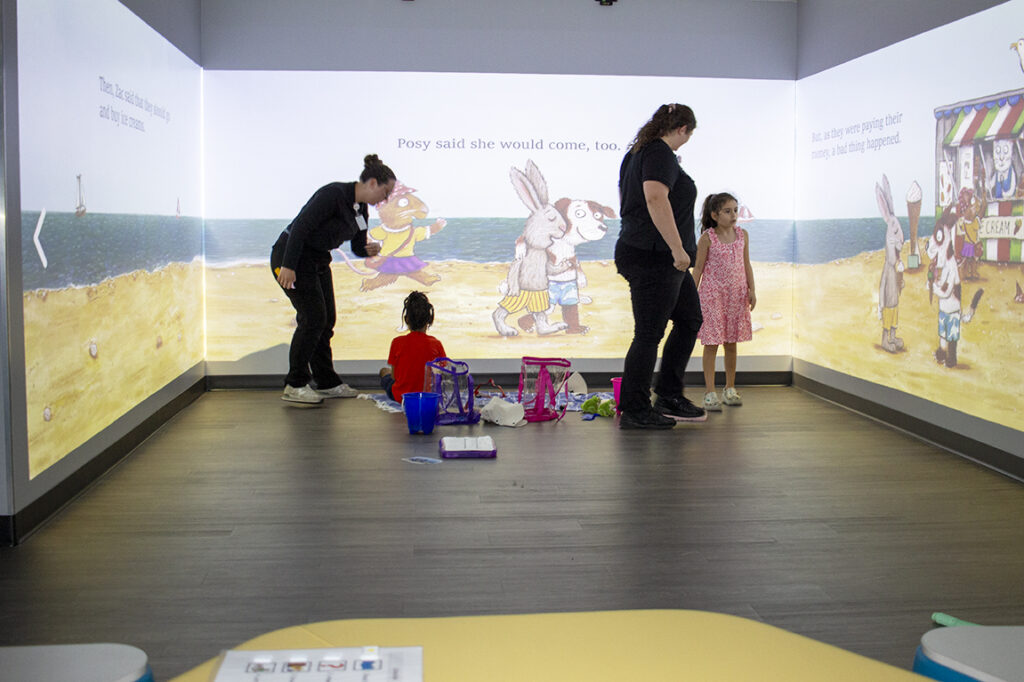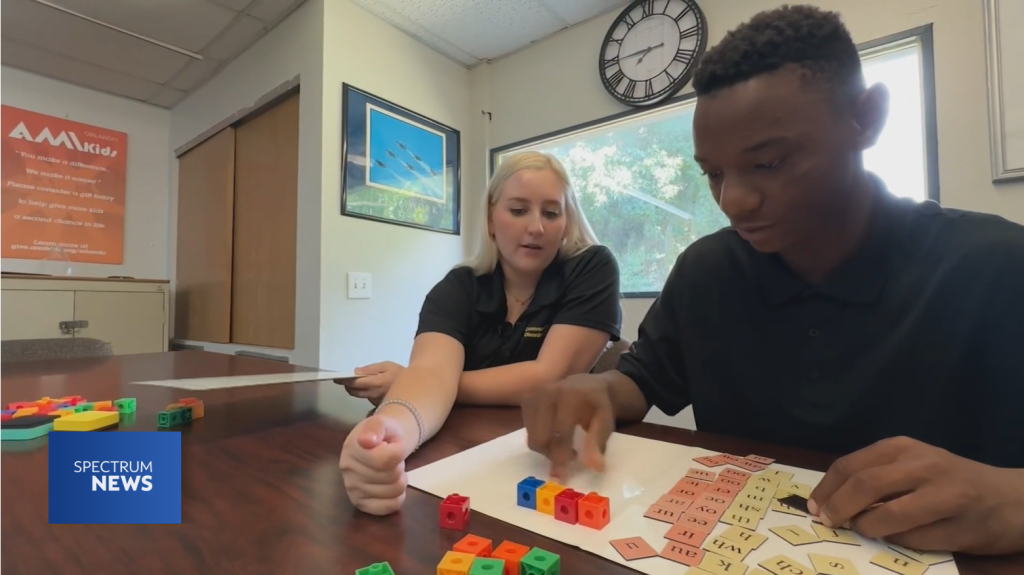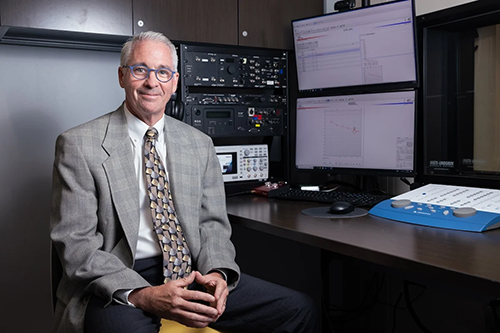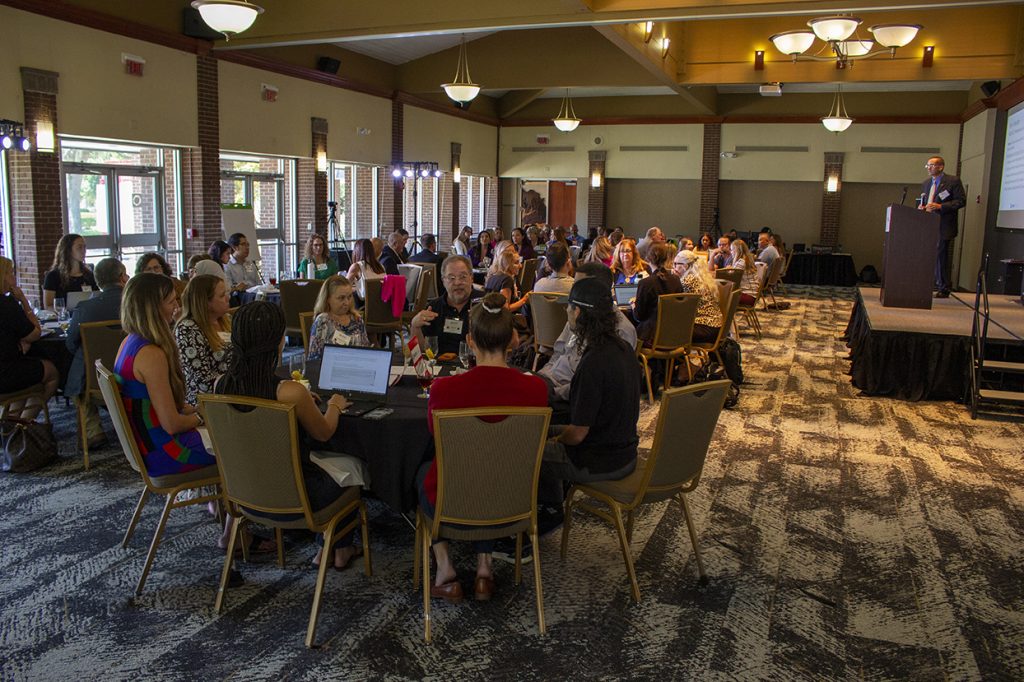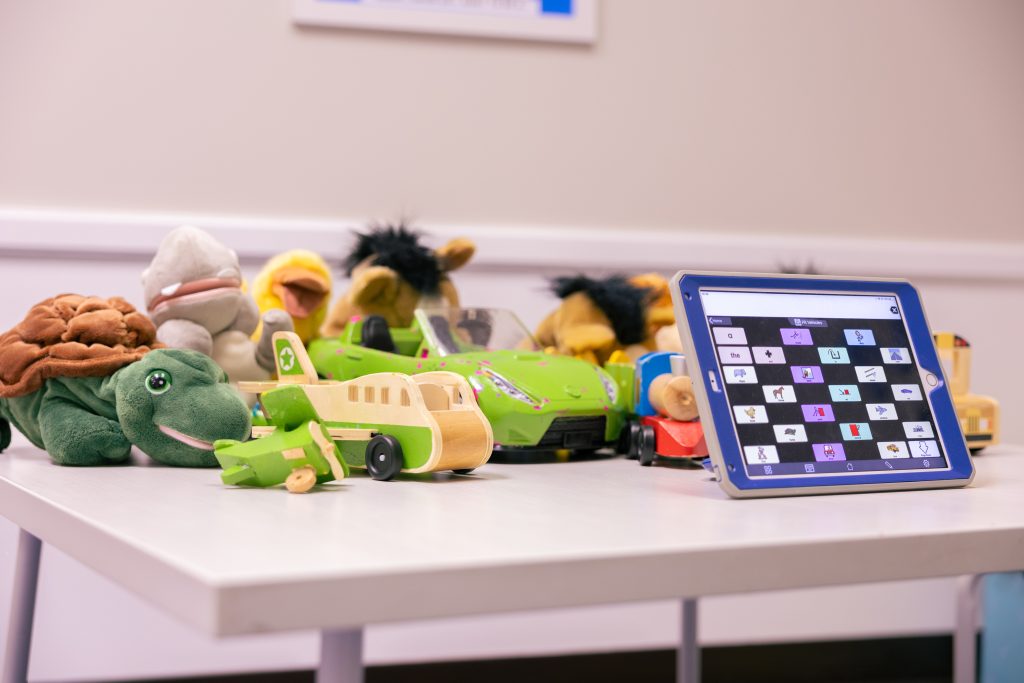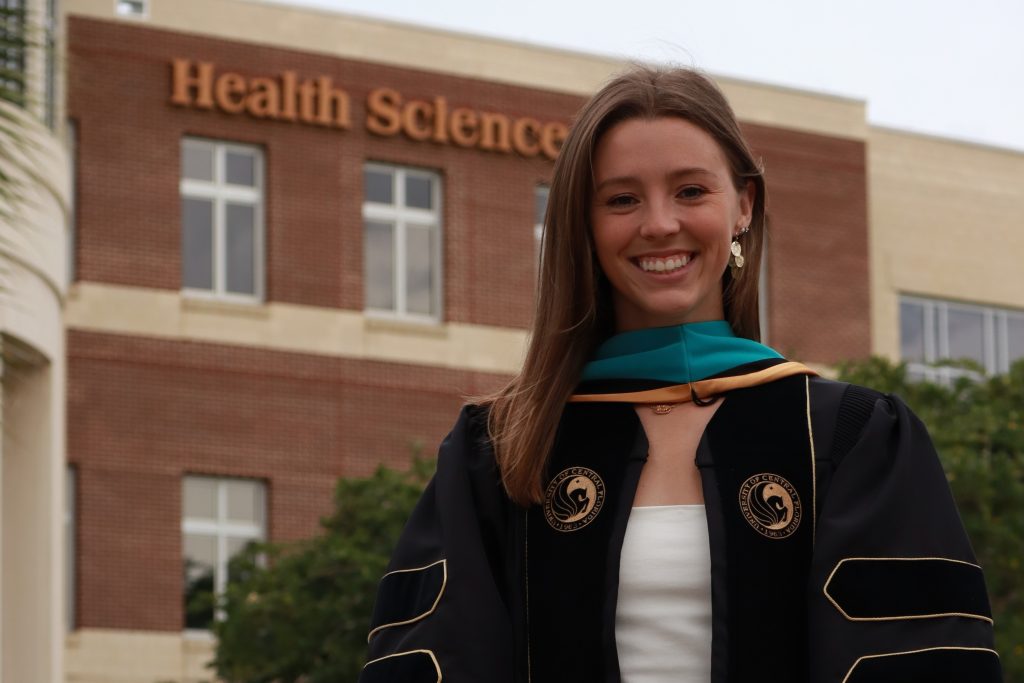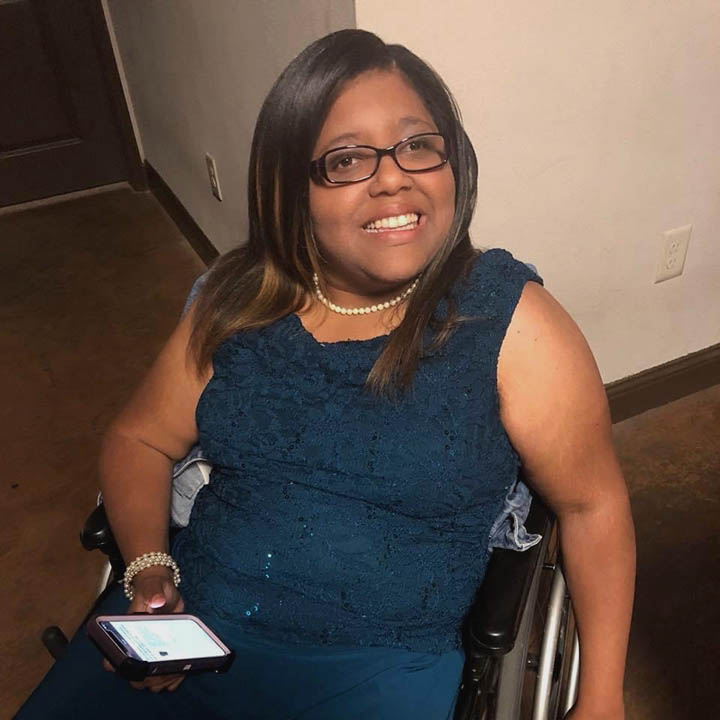
When Ashlei McGhee, an undergraduate student in the School of Communication Sciences and Disorders, was born two and a half months early, she weighed barely 2 pounds and her brain was half the size of a typically developing baby’s. Doctors gave her parents a grim prognosis. “No laughing, no talking and definitely no college,” McGhee recalled.
Now, at 36, McGhee has defied those odds – and she’s not finished yet.
She uses a wheelchair to help her get around and has a ventriculoperitoneal shunt in her brain that treats her hydrocephalus, a complication of her premature birth and cerebral palsy. She entered the foster care system when she was 13 and lived in 30 different foster homes until she aged out at 18. Because she moved so much, she dropped out of high school because the cycle of starting over became too much for her and earned her GED at 19. She has had 17 surgeries throughout her life, which is largely the reason it took her 10 years to earn her associate degree.
It’s fair to say that McGhee has defied the odds and naysayers, and her own precarious upbringing to make it to where she is today — a junior in the CSD program. The Chicago native lives independently in South Florida, has a wide circle of friends, and earned a 4.0 in her latest semester at UCF. She says people underestimate her when they see her in a wheelchair — judging by her current list of accomplishments, she’s probably right.
Although people may notice her wheelchair, it’s her determination and grit that have caught the attention of her teachers.
“In getting to know Ashlei and what she is capable of, it’s clear that she is extremely resilient,” says Joseph DiNapoli, an instructor in CSD. “Often today, students struggle when life’s challenges arise. Ashlei has overcome so much, and she is laser-focused on her goal of becoming a speech-language pathologist. Those are traits you just can’t teach.”
McGhee says she doesn’t know where her drive comes from: “I think it’s just a collection of all of the things I’ve lived with or gone through.”
McGhee’s experiences with rehabilitation therapy helped her realize how important communication is to every human, even if they are nonverbal. She says she always understood the impact that had on someone’s happiness, and their ability to feel connected to others and loved. But it became crystal clear when she met a 9-year-old child with autism at one of the group homes. He was still in diapers and nonverbal.
“He wanted to eat but didn’t know how to tell people he was hungry. I was able to teach him signs for hungry. I taught him signs for needing to go to the bathroom and was able to get him out of diapers.”
McGhee says she realized the child had likely been underestimated all his young life, just like she was. She has vowed to help empower children through improved access to communication.
Some may look at McGhee and think she is incapable of providing speech therapy to others. There are many licensed SLPs who use a wheelchair or other mobility devices. One specialty within the profession focuses on the voice and upper airway, which makes it a good fit for those who want to work in healthcare but may have mobility impairments. Most work is done sitting down with a patient or client.
While she says she is proud of how far she has come, she wishes she had known then what she knows now. She had been unaware of a Florida statute that provides free college tuition and fee exemptions at state institutions for individuals who have been in the state’s foster care system. She could have used that assistance back when she was trying to balance paying for her AA degree and the surgeries she needed.
And although life has presented McGhee with many challenges along the way, there has been at least one pleasant surprise that recently brought her unexpected joy.
“I have a sister that I never knew I had,” McGhee exclaims. Thanks to a DNA sample her sister submitted to a genealogical website, McGhee found a new support system in a family member she never knew she had. “I love you, Alex!”
The relationship still feels very new to McGhee, but she says she and her sister already share common traits, including an interest in health care. In the meantime, she enjoys having someone to share her personal and professional journey with.
Through her own experiences, McGhee dispels myths about handicapped individuals.
“People think that [handicapped individuals] can’t amount to anything or that they can’t do anything,” McGhee says. She knows three other individuals with cerebral palsy, and “one’s a paralegal, one’s an attorney, and one started a business putting doorbells into businesses so that when a handicap person pulls up they can ring for assistance.”
Often, McGhee says, we can’t see the abilities in each other.
“I consider myself a miracle, honestly,” McGhee says. “I can’t straighten my hands out all the way, I have issues with my spine. But really, we all have our problems. It’s what you do in spite of those problems— that’s the true test of who you are.”

